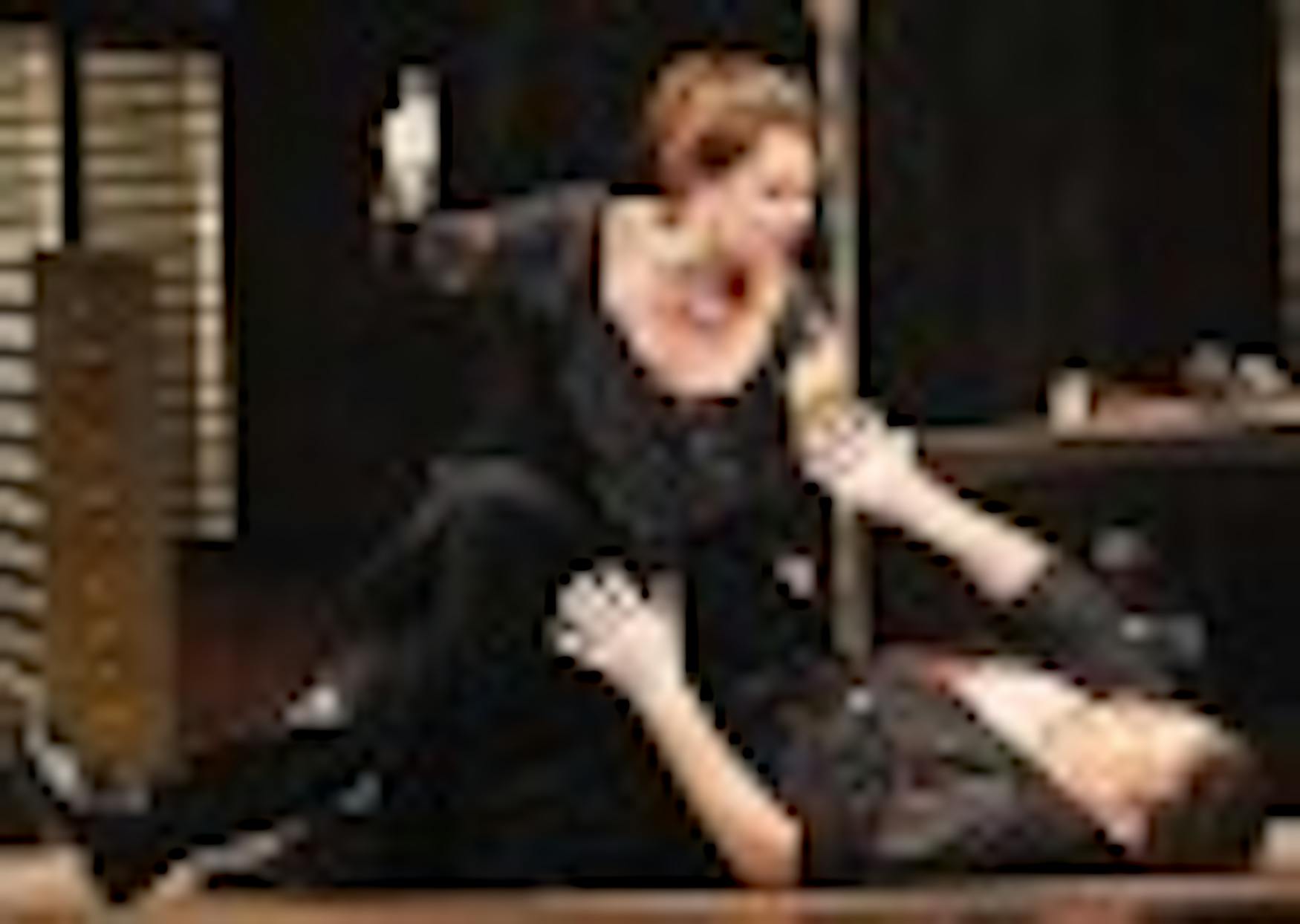Tosca' proves opera is accessible for all
The Shubert almost feels like home now. Some of the greatest opera in Boston is performed here, and there is a reassurance that fills each gilded corner: one knows that whatever is being played that night will be exquisite. Tosca goes above and beyond. Put on by the Boston Lyric Opera, this particular opera is one of the finest and most beloved operas ever written and countless productions, good and bad, have been put on. But the BLO steps up to the hype and really delivers something that left this little would-be opera connoisseur completely blown away at the end of the night.The turbulent tale of Tosca and Cavaradossi starts with just as unstable a beginning. An escaped political dissident by the name of Angelotti, played by Anton Belov, rushes nervously through a church that is currently wrapped in tarps and littered with art supplies because it is being refurbished. He meets the hero of the story, Mario Cavaradossi, played by Richard Crawley, who is the resident painter and an apparent old friend with rebel sympathies. Enter Floria Tosca, played by Jill Gardner, Cavaradossi's beloved and greatest inspiration.
She is a spirited and feisty woman, truly pious but also jealous, and she starts to fight with Cavaradossi who is painting another woman as the Mary Magdalene on one of his canvases. But he seems rather unfazed by her remarks and jealous quips-he is secure that Tosca is the only woman he loves and does not take her jealousy seriously. Then Cavaradossi exits to help Angelotti hide.
The scenes at the start of the opera are lighthearted, and the love between the two heroes is as sweet as that of two new paramours, as Tosca's jealousy is endearing rather than stifling. But then all spirit is splintered with the entrance of Scarpia, the monstrous policeman on Angelotti's trail, played by BLO debutant Bradley Garvin.
Upon first meeting the captivating and sable-eyed Tosca, Scarpia is immediately overcome-not with love, but with a predatory and lecherous hunger for her. He vows to claim two bodies by the end: Angelotti's and Tosca's. He tortures Cavaradossi for information about Angelotti as an anguished Tosca is forced to listen to his screams of pain. She finally gives in and reveals Angelotti's location. But Scarpia still threatens to kill Cavaradossi if Tosca doesn't give herself to him. A monumental struggle between Tosca's immense disgust for Scarpia and her unflappable love for Cavaradossi tears her judgment to pieces. The ensuing phenomenon of storytelling by Puccini and his libretto is one that left audiences reeling through the ages from its first performance till the present. To reveal such details would be unfair to the exquisite expositions of the performance itself-such discoveries are best impressed in an audience's chair, listening to the sounds of true human emotion borne on the slides of trombones and the conductor's baton.
Though the vocalists were playing without one of their own that night (their true Cavaradossi, played by Diego Torre, was recovering from a bronchial infection), the chemistry between the actors was still largely unfettered. There were a few moments that occurred within the love triangle that seemed emotionally reined in where they shouldn't have been, but each actor shined brilliantly in his or her respective roles.
Crawley's robust interpretation of Cavaradossi's steely moral fortitude as well as tender adoration of Tosca was shrewd with the knowledge of previous experience. With a voice that could pierce straight through the ceiling, his presence could not be ignored. Garvin's depiction of the self-possessed and barbaric Scarpia was ruthless but tended to be slightly soft in his physical lechery toward Tosca. However, his voice suited the role of power-hungry savage quite well-his "Te Deum" is a glorious visual and aural barrage. His rich baritone and tightly wound vibrato electrified the air with menacing currents. But it was the resident Tosca that shone the brightest. An exceptional actress who could slip from coy to heartbroken convincingly, Gardner was the one to keep an eye on that night. A heavy-hitting soprano, Gardner grabbed the role of Tosca and refused to let go; the role was right in her wheelhouse, and she excelled in both her vocalizations and acting.
The sets and dress were exquisite. Not one raise of the curtain failed to produce gasps from the audience. The BLO's production of Tosca deviated from the original setting of Rome in 1800, in which the rebels were Napoleon and his forces. Instead, they chose to set the performance in Nazi-occupied Rome with Scarpia as the head of the Nazi police. With the women clad in '40s glamour and soldiers in Gestapo uniforms, this production of Tosca feels easier to relate to and the story of love and anguish finds a firm foothold in this interpretation. And Puccini's music, conducted by Andrew Bisantz, was supportive without being insistent. The chemistry between the voices on the stage and in the pit was always finely balanced, one never totally overpowering the other.
Tosca is an experience. No other words are necessary to describe it. It is something that everyone should try to see at least once. And though some might be a bit wary of opera, Tosca is the show that can break the stereotype. Opera is just another medium through which a story is told. And with as captivating a story as that of Tosca's, it's hard not to enjoy it.
Tosca is playing at the Shubert Theater until Nov. 16. Students can purchase a subscription to the BLO and receive highly discounted tickets with special seating.



Please note All comments are eligible for publication in The Justice.